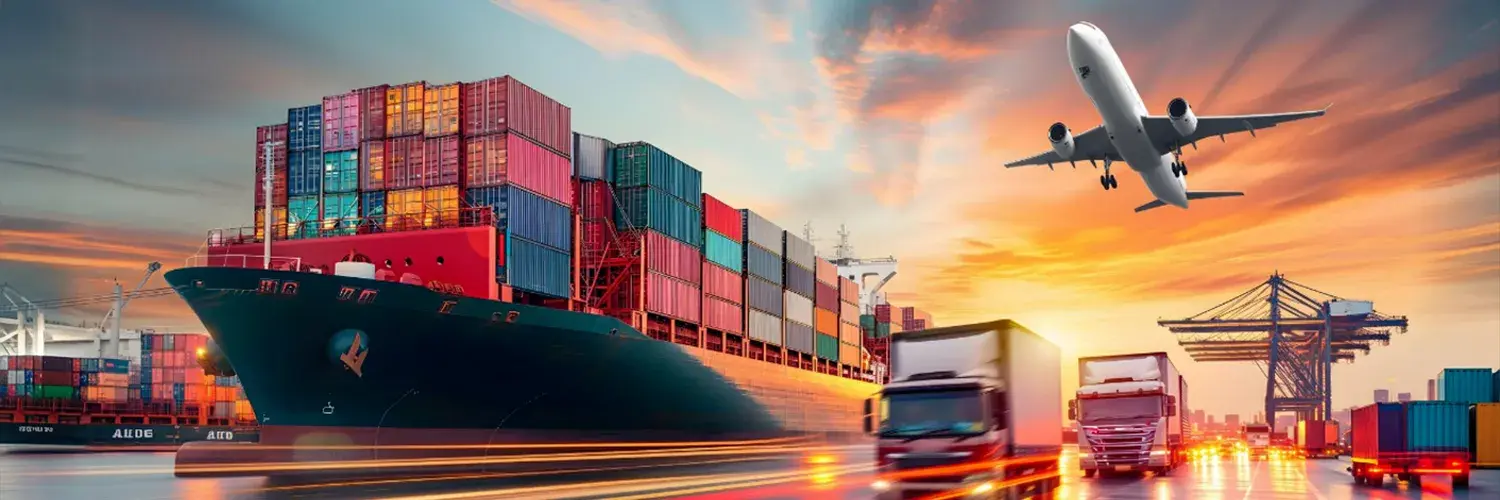Blockchain in Logistics: Beyond Buzzwords and Into Real-World Use
The logistics sector is evolving under the pressure of rising global demands, increasing supply chain complexities, and the growing need for transparency. As businesses push for more agile, data-driven operations, blockchain in logistics has emerged as a practical solution that delivers accuracy, trust, and real-time visibility. It’s no longer a concept for the future but a transformative force shaping logistics today.
How Blockchain is Transforming Modern Logistics Operations
Blockchain technology is redefining how the logistics industry manages, shares, and secures data across the supply chain. Instead of relying on fragmented data systems and manual coordination, logistics providers are adopting a decentralized approach that enhances reliability and accountability.
Key capabilities include:
Tamper-proof data: Once recorded, blockchain entries cannot be altered.
Enhanced collaboration: Multiple parties can access shared, real-time data without risk of manipulation.
Decentralized trust: Eliminates the need for central intermediaries.
With rising demand for supply chain transparency, blockchain is no longer just a theoretical innovation. It is becoming a foundational tool in building resilient, tech-enabled supply chains.
Real-World Applications of Blockchain in Freight
Below are some of the practical use cases that highlight the growing impact of blockchain on logistics performance and transparency.
1. Real-time Shipment Tracking
Traditional tracking systems often suffer from data silos and time lags. Blockchain-enabled platforms allow for:
Instant location updates
Automated timestamping
Verifiable audit trails
Dynamic Worldwide Logistics Group has aligned its operations with emerging blockchain-ready infrastructure, enabling customers to benefit from improved shipment accuracy and visibility across critical routes.
Example:
For instance, Nestlé benefits from real-time shipment tracking with blockchain to trace the journey of its food products from origin to shelf. It is especially more useful in long-haul freight for perishable items.
2. Smart Contracts in Shipping
Smart contracts are self-executing contracts coded into the blockchain. In logistics, they can automate:
Payment releases upon delivery
Customs clearance processing
Carrier penalties for delays
This removes human error and minimizes delays, increasing efficiency at critical checkpoints.
Example:
A major European agricultural exporter began using blockchain-based smart contracts to manage shipping agreements with international buyers. Once cargo was scanned at the destination port, the smart contract automatically triggered payment release without the need for manual verification. The system also enforced penalties when delivery deadlines were missed or documentation was incomplete. As a result, the company saw faster settlements, fewer disputes with carriers, and improved compliance across cross-border transactions.
3. Secure Data Sharing Across Borders
Multinational shipping requires the secure transfer of sensitive data across countries. Blockchain allows:
Controlled data access via encryption keys
Shared customs documentation without duplication
Reliable cargo certification verification
Example:
An electronics manufacturer operating across Asia, Europe, and North America adopted blockchain to manage its cross-border shipping documentation. Through encrypted access, customs authorities in each region could securely review shipment records, certificates of origin, and inspection results in real time, without the need for duplicated paperwork or manual coordination. This shift significantly reduced document processing time and improved regulatory compliance across multiple jurisdictions.
Logistics Tech Trends 2025: Blockchain at the Core
Here are some important blockchain trends to expect in 2025:
Systems that work together: Different logistics platforms will become more connected through blockchain, allowing smoother data exchange.
IoT integration: Sensors and devices will work with blockchain to track temperature, location, and handling in real time.
Collaborative networks: More companies will join industry-wide blockchain groups to standardize logistics processes and improve transparency.
As seen in this post “How AI and IoT are transforming logistics in 2025”, companies that keep up with the trends will experience faster operations, fewer errors, and better customer satisfaction.
Blockchain’s Role in Digital Transformation in Freight
Digital transformation in freight is not just about going paperless. It’s about harnessing technology to build a smarter, more responsive supply chain. Blockchain supports this transformation by:
Replacing outdated, manual processes
Enabling real-time collaboration
Driving decision-making through accurate, real-time data
Pro Tip: Logistics providers integrating blockchain with AI and IoT are seeing faster ROI and greater customer retention rates.
Future of Blockchain in Logistics
The future points to deeper integration, especially as 5G networks and edge computing improve real-time data flow. Smart containers, predictive maintenance, and AI-backed forecasting models will all rely on blockchain for secure data validation.
What to expect:
Cross-platform blockchain solutions for universal cargo tracking
Decentralized freight marketplaces
Real-time carbon footprint tracking to support green logistics
The next generation of logistics tech will not function without reliable data integrity, and blockchain provides that foundation.
Challenges to Widespread Adoption
While blockchain’s benefits are clear, certain industry limitations still hinder full-scale implementation.
Main hurdles include:
Lack of technical expertise in integrating blockchain with legacy systems
Scalability issues when handling large volumes of transactions
Regulatory uncertainty in regions lacking clear blockchain policies
These challenges underscore the need for phased implementation strategies and strong industry partnerships.
Conclusion
Blockchain in logistics is redefining how the world ships, tracks, and secures goods. By supporting real-time visibility, verifiable contracts, and seamless data sharing, it enables companies to operate with greater efficiency and confidence.
Businesses looking to enhance freight capabilities through transparency and automation should explore how blockchain in logistics is being applied in practical, measurable ways.
Dynamic Worldwide Logistics Group continues to lead in implementing smart, future-forward shipping and logistics services that align with global digital transformation. Learn more about how we can support your supply chain modernization goals.
Get in touch today!
FAQs
Q1. Is blockchain in logistics only useful for large enterprises?
No, even small and mid-sized logistics firms can benefit from blockchain by improving documentation accuracy, reducing fraud, and increasing shipment visibility.
Q2. How does blockchain ensure data security in freight forwarding?
Blockchain encrypts and decentralizes data, making it nearly impossible to tamper with. Each transaction is recorded in a block that is linked to the previous one, ensuring data integrity.
Q3. What is the difference between blockchain and traditional tracking systems?
Traditional systems often store data separately and can cause delays. Blockchain creates a single, shared system where updates happen in real time and records can’t be changed once added.
Q4. Can blockchain reduce shipping costs?
Yes, by eliminating intermediaries, reducing errors, and automating processes through smart contracts, blockchain can significantly cut operational costs.
Q5. What industries besides freight are using blockchain for logistics?
Pharmaceuticals, food and beverage, and high-value goods industries are among the early adopters using blockchain to track shipments, ensure safety, and validate authenticity.



















